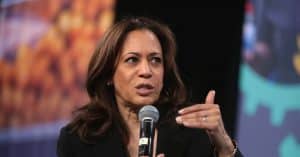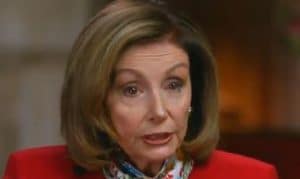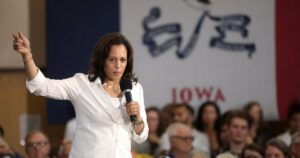LA Times Owner’s Decision Not to Endorse Explained by Daughter
The Los Angeles Times, known for its political endorsements, recently opted not to back a candidate in the 2024 presidential race, a decision that has ignited controversy and led to notable resignations within the paper.
The decision, reportedly influenced by the paper's owner Dr. Patrick Soon-Shiong, has been the subject of intense debate and led to the resignation of several key editorial board members.
Nika Soon-Shiong, daughter of the media mogul who owns the Los Angeles Times, offered an explanation for this decision last week. She expressed her opposition to the Biden-Harris administration's support for Israel's military actions in Gaza. Her statements came as a surprise to many, as the paper traditionally takes a stand during presidential elections.
Nika’s Comments Draw Public Attention
Several reports have indicated that the endorsement process within the LA Times was contentious. According to Nika, the decision represented a strong opposition to actions in Gaza, drawing from her family's historical opposition to Apartheid-era policies in South Africa.
Nika Soon-Shiong made her comments public on the social media platform X, formerly known as Twitter, where she articulated the gravity of genocide as a boundary her family will not cross. Despite her claims, a "Community Notes" fact check on X presented a different narrative, suggesting that Dr. Soon-Shiong overruled an endorsement decision that was almost in favor of Kamala Harris, disputed by the check.
Dr. Soon-Shiong’s decision to prevent the endorsement did not appear to explicitly link to the Gaza conflict, according to the fact check referencing other sources like Politico. Nika, though, asserted that this choice was a principled stance against what she referred to as "war on children."
Consequences Within the LA Times
As the fallout from this decision unfolded, Mariel Garza, known for her role as editorials editor at the LA Times, and two seasoned journalists from the editorial board handed in their resignations. Garza, in particular, expressed her disapproval of the silence that the non-endorsement implied, citing the need for courage in challenging times.
Nika further elaborated that the decision was made collectively by her family, emphasizing this was her first involvement in such a process. She clarified that the refusal to endorse should not be interpreted as backing Donald Trump, but as a rejection of the current administration's policies.
Background Behind the Non-Endorsement Decision
Dr. Patrick Soon-Shiong’s spokesperson confirmed that Nika voiced her personal opinions and held no influence over the LA Times’ editorial decisions. This clarification was crucial as it underscored the separation between personal family views and the editorial independence of the newspaper.
The LA Times had been preparing to endorse Kamala Harris, according to reports by Semafor and The Daily Mail. The abrupt decision from the owner thwarted these preparations, underscoring the complex dynamics at play within the organization.
Nika's remarks have raised questions about the influence of media ownership on editorial practices, especially in politically charged contexts. Her passionate opposition to what she termed crimes against humanity and ethnic cleansing parallels her family's historical activism against discrimination.
Nika’s Remarks Spark Broader Debate
By speaking out, Nika Soon-Shiong has thrust herself and her family's legacy into the spotlight, linking current geopolitical issues with deeply personal convictions stemming from her heritage. She maintained that the lack of endorsement aligns with her advocacy for human rights and the protection of journalists.
The media and public have been divided on the motivations and implications of the LA Times' decision. While some applaud the principled stand, others view it as a missed opportunity to influence critical electoral outcomes through journalistic guidance.
Despite the heated debates and resignations, the decision by Dr. Soon-Shiong remains a significant topic of discussion, illustrating the complex interplay between media, politics, and personal values. Nika's statement that the editorial decision is a stand against the narrative surrounding conflict zones further highlights ongoing dialogues on media's role in political discourse.
In conclusion, the Los Angeles Times' choice to remain neutral in this election cycle has highlighted tensions within the editorial board and sparked broader discussions on media ownership and its implications for impartial journalism in crucial political times.




